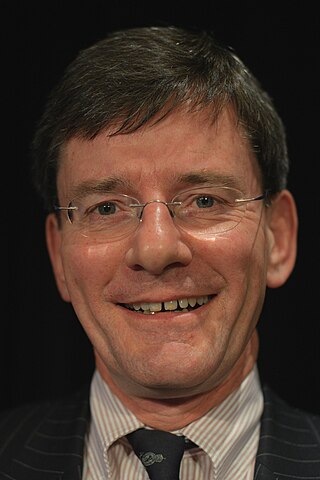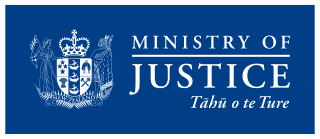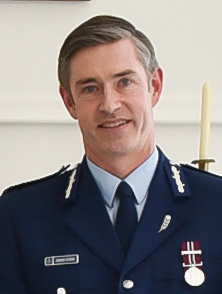Related Research Articles

The national parks of New Zealand are protected natural areas administered by the Department of Conservation (DOC). The first national parks established in the country were all focused on mountain scenery. Since the 1980s the focus has been on developing a more diverse representation of New Zealand landscapes. The parks are all culturally significant and many also contain historic features. Tongariro National Park is one of the World Heritage Sites that are of both cultural and natural significance, while four of the South Island national parks form Te Wahipounamu, another World Heritage Site. There are currently 13 national parks; a 14th, Te Urewera National Park, was disestablished in 2014.
Archives New Zealand is New Zealand's national archive and the official guardian of its public archives. As the government's recordkeeping authority, it administers the Public Records Act 2005 and promotes good information management throughout government.
The Department of Internal Affairs (DIA) is the public service department of New Zealand charged with issuing passports; administering applications for citizenship and lottery grants; enforcing censorship and gambling laws; registering births, deaths, marriages and civil unions; supplying support services to ministers; and advising the government on a range of relevant policies and issues.

The Supreme Court of New Zealand is the highest court and the court of last resort of New Zealand. It formally came into being on 1 January 2004 and sat for the first time on 1 July 2004. It replaced the right of appeal to the Judicial Committee of the Privy Council, based in London. It was created with the passing of the Supreme Court Act 2003, on 15 October 2003. At the time, the creation of the Supreme Court and the abolition of appeals to the Privy Council were controversial constitutional changes in New Zealand. The Supreme Court Act 2003 was repealed on 1 March 2017 and superseded by the Senior Courts Act 2016.

The New Zealand Police is the national police service and principal law enforcement agency of New Zealand, responsible for preventing crime, enhancing public safety, bringing offenders to justice, and maintaining public order. With over 15,000 personnel, it is the largest law enforcement agency in New Zealand and, with few exceptions, has primary jurisdiction over the majority of New Zealand criminal law. The New Zealand Police also has responsibility for traffic and commercial vehicle enforcement as well as other key responsibilities including protection of dignitaries, firearms licensing, and matters of national security.
This is a timeline of environmental history of New Zealand. It includes notable events affecting the natural environment of New Zealand as a result of human activity.

Anne Merrilyn Tolley is a New Zealand politician.

Christopher Francis Finlayson is a New Zealand lawyer and former Member of Parliament, representing the National Party.
The Ministry for the Environment is the public service department of New Zealand charged with advising the New Zealand Government on policies and issues affecting the environment, in addition to the relevant environmental laws and standards. The Environment Act 1986 is the statute that establishes the Ministry.

The Fifth Labour Government of New Zealand was the government of New Zealand from 10 December 1999 to 19 November 2008. Labour Party leader Helen Clark negotiated a coalition with Jim Anderton, leader of the Alliance Party. While undertaking a number of substantial reforms, it was not particularly radical compared to previous Labour governments.

The Ministry of Justice is an executive department of the New Zealand Government, responsible for supporting the judiciary and the administration of justice within New Zealand. It develops justice policy and provides advice to ministers, Cabinet, and other justice sector agencies. Its main functions are to help reduce crime and build safer communities; increase trust in the justice system; and maintain the integrity of New Zealand's constitutional arrangements.
The gun laws of New Zealand are contained in the Arms Act 1983 statute, which includes multiple amendments including those that were passed subsequent to the 1990 Aramoana massacre and the 2019 Christchurch mosque shootings.

Dame Margaret Clara Bazley is a New Zealand public servant. She began her career as a psychiatric nurse and rose through the ranks to senior leadership positions at psychiatric hospitals and district health boards. In 1978 she became the Director of Nursing at the Department of Health, the chief nursing position in New Zealand and at that time the most senior position in the public service held by a woman, and in 1984 became the first female State Services Commissioner. She subsequently held top positions at the Department of Transport and the Department of Social Welfare.
The Fifth National Government of New Zealand was the government of New Zealand for three parliamentary terms from 19 November 2008 to 26 October 2017. John Key served as National Leader and prime minister until December 2016, after which Bill English assumed the premiership until the National Government's defeat following the October 2017 government-forming negotiations.

Louise Claire Upston is a New Zealand politician. She was elected as a Member of the New Zealand House of Representatives for Taupō, representing the National Party, in the 2008 general election.
The Social Policy Research and Evaluation Unit, known as Superu and previously known as the Families Commission, was an autonomous New Zealand Crown entity which undertook social science research and advocated to government on behalf of families. It commenced operating on 1 July 2004 and was disestablished on 30 June 2018.

Eugenie Meryl Sage is a New Zealand environmentalist and former politician. She was a Green Party Member of Parliament in the New Zealand House of Representatives from 2011 to 2023.
New Zealand is committed to the Universal Declaration of Human Rights and has ratified the International Covenant on Civil and Political Rights, both of which contain a right to privacy. Privacy law in New Zealand is dealt with by statute and the common law. The Privacy Act 2020 addresses the collection, storage and handling of information. A general right to privacy has otherwise been created in the tort of privacy. Such a right was recognised in Hosking v Runting [2003] 3 NZLR 385, a case that dealt with publication of private facts. In the subsequent case C v Holland [2012] NZHC 2155 the Court recognised a right to privacy in the sense of seclusion or a right to be free from unwanted intrusion.

Andrew David Coster is a New Zealand senior public servant and former police officer. Currently the chief executive of the Social Investment Agency, he served as Commissioner of Police from 3 April 2020 to 10 November 2024.
The Office of the Chief Freshwater Commissioner is a New Zealand government commission established by the Resource Management Amendment Act 2020, as part of a new Freshwater Planning Process (FPP). The Resource Management Amendment Act 2020 required regional councils and unitary authorities to have freshwater plans in place by 2024. These plans were to give effect to the National Policy Statement for Freshwater Management. The Chief Freshwater Commissioner must be a current or retired Environment Court judge, and is appointed by the Minister for the Environment. The Office operates independently and does not provide policy advice.
References
- ↑ "Police Act 1958 (1958 No 109)". www.nzlii.org. Retrieved 2025-01-03.
- ↑ "The establishment of New Zealand Police". New Zealand Police. Retrieved 2025-01-04.
- 1 2 Bazley, Dame Margaret (March 2007). Report of the Commission of Inquiry into Police Conduct (PDF). Commission of Inquiry into Police Conduct. pp. 119–121. ISBN 978-0-477-10037-3.
- ↑ Little, Paul (8 May 2019). "When traffic cops used to rule New Zealand roads". www.stuff.co.nz. Retrieved 2025-01-04.
- ↑ "Hiring and firing of police chief 'needs clarification'". NZ Herald. 2025-01-04. Retrieved 2025-01-04.
- ↑ "Police Support Rewrite Of The Police Act 1958". Scoop News. 7 March 2006.
- ↑ "Police Act to be reviewed | Beehive.govt.nz". www.beehive.govt.nz. Retrieved 2025-01-04.